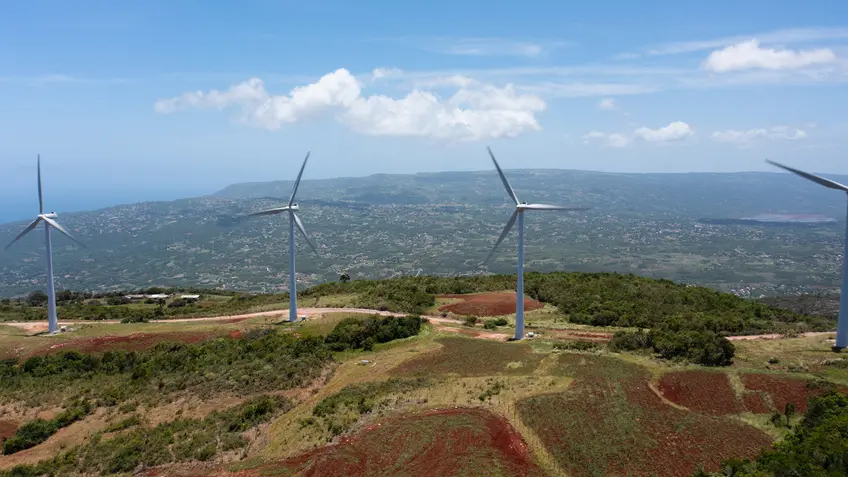Needs and Opportunities of Developing Countries on Greening the Financial Sector
Unprecedented times call for unprecedented action and mobilization of resources. To avoid the worst impacts of climate change, at least USD 4.3 trillion is needed in annual finance flows by 2030. For countries to reach these targets, there is a need to go beyond incremental action and instead target systemic change that can transform the allocation of finance. Greening the financial sector is critical in this pursuit.
To discuss the needs and opportunities of developing countries in greening the financial sector, The Organisation for Economic Co-operation and Development (OECD) and the NDC Partnership organized the workshop “Greening the financial sector: Needs and opportunities of developing countries and the role of development cooperation” at the end of 2022. The workshop brought together government practitioners and experts from the climate change and finance fields, as well as private-sector representatives, to share experience and insights on:
- Greening financial sectors for mobilizing private-sector investment;
- Enabling developing countries’ central banks and supervisors to strengthen efforts to green the financial sector;
- Ensuring access to finance and financial inclusion to build resilience to climate and biodiversity crises;
- Supporting developing countries to green their financial sectors through development cooperation and international initiatives.
The persistent need to increase adaptation finance
One of the most stressed points throughout the workshop was the disparity in global investments. Despite the effects of climate change being more visible in Global South countries, adaptation projects only receive 20% of global financial flows. Egypt's Minister of International Co-operation, Rania Al-Mashat, highlighted how the financing gap for NDCs is particularly wide in Africa, “where USD 250 billion is needed, and only USD 19 billion has thus far been committed.”
Developed countries are stepping up in directing finance flows towards achieving the Paris Agreement commitments. Merete Villum Pedersen from the Danish Ministry of Foreign Affairs disclosed that Denmark's new development policy would ensure that 60% of its climate change spending goes to adaptation projects. The agency of governments in developing countries is key in creating enabling environments and attracting finance to build resilience domestically. This is the case in Nigeria, where the Central Bank has developed enabling conditions for adaptation-targeted finance, such as the Nigeria Sustainable Banking Principles (2012).
Engaging the private financial sector
Public finance will never be able to cover the full costs of climate action. It is estimated that over 90% will need to be covered by the private sector, therefore it is critical to engage the private sector in developing low-carbon and climate-resilient projects. To do so, governments and development partners play a key role in developing suitable policy and regulatory conditions to encourage private sector investments. According to Thomas Tayler, Senior Manager of Sustainable Finance Centre for Excellence at Aviva, current enabling environments have not been “designed to address the current climate crisis." Only with the push-and-pull incentives of strong regulation is it possible to redirect resources to emerging markets that desperately need private capital.
Embedding climate finance into development efforts
"Development cooperation and climate action are inseparable and must be aligned," said Jens Sedemund, Head of Climate Change and Environment at the OECD, on the second day of the workshop. This argument that climate financial flows must be integrated into the development architecture if we are to deliver on the Paris Agreement was repeatedly echoed throughout the workshop. Development partners recognize that climate change poses complex challenges to the financial system, but it also brings opportunities to support development work. In this sense, climate and development must be seen as two sides of the same coin. For example, the European Investment Bank has set up the goals of devoting 50% of lending activity to climate action and environmental sustainability by 2025, leveraging 1 billion euros in investment, and fully aligning with the Paris Agreement. Similarly, The European Bank for Reconstruction and Development (EBRD) is committed to becoming fully Paris-aligned by the end of 2022, both in its direct and indirect investments.
The role of central banks
Amanda McKee, the Knowledge & Learning Director of the NDC Partnership Support Unit, highlighted how critical central banks are to "send consistent and persistent market signals for market risks." In 2021, the NDC Partnership launched the Readiness Support for Greening Central Banks Initiative, helping to engage the financial sector and mitigate the risks, catalyzing some of these opportunities to transition towards a carbon-free economy. The Initiative, which is part of the NDC Partnership Finance Strategy, has been instrumental in helping countries enhance capacity and mainstream climate into their regulatory frameworks and overall risk management.
The Eastern Caribbean Central Bank (ECCB) is one of the regional central banks the NDC Partnership supports. With the technical support offered by the The Agence Française de Développement (AFD), the ECCB developed climate-stress testing, risk disclosure (TCFD), and taxonomy. Kieran St Omer, Projects and Technical Assistance Unit from ECCB, shared insights on how the bank has been greened, emphasizing the critical role markets need to play to mobilize finance and find innovative finance solutions.
Stronger cooperation across the board
Developed and developing countries alike are learning by doing when it comes to greening financial sectors. This can be an opportunity for all, allowing for true peer learning and cooperation around country ownership. Stronger collaboration between stakeholders across sectors is imperative. Close collaboration will generate opportunities for peer learning and knowledge exchange to address the scarcity of climate finance expertise.
